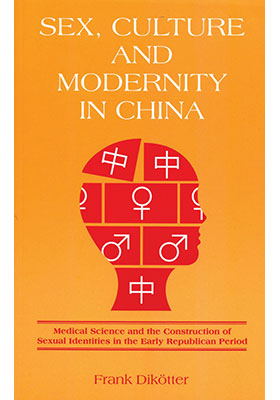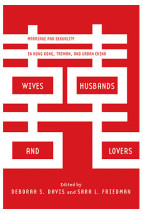Sex, Culture and Modernity in China
Medical Science and the Construction of Sexual Identities in the Early Republican Period
(中國的性文化與現代性:民國初期的醫學與性身份的建構)
ISBN : 978-962-209-382-9
May 1995
242 pages, 5.5″ x 8.5″
For sale in Hong Kong SAR, Mainland China, Australia, and New Zealand only
- HK$105.00
With the disintegration of Confucian cosmology after the fall of the imperial system in China, medical science was introduced as an epistemological foundation for social order. The construction of sexuality as a dangerous drive which was thought to form the very core of the individual led to the emergence of a wide range of identities like the menstruating girl, the hysterical housewife, the masturbating adolescent and the syphilitic husband. The naturalization of desire also introduced a tension between the sexual responsibilities of the individual and the coercive intervention of civil society in the name of the collective health of future generations.
Although new categories of analysis, such as ‘population’, ‘race’, ‘sex’, ‘woman’ and ‘youth’ were introduced to early Republican China from abroad, their reception and adaptation were founded on cultural reorientations in the 17th and 18th centuries. Instead of describing the rise of normative naturalism as a derivative discourse from ‘the West’, this book recognizes that the roots of modernizing representations may have had to be sought in a rich and diverse past in China itself.
This study is based on medical and lay texts such as handbooks, marriage guides and introductions to physiology and sexual hygiene. The epilogue shows how the sexual identities invented early this century are still in place in China today.


